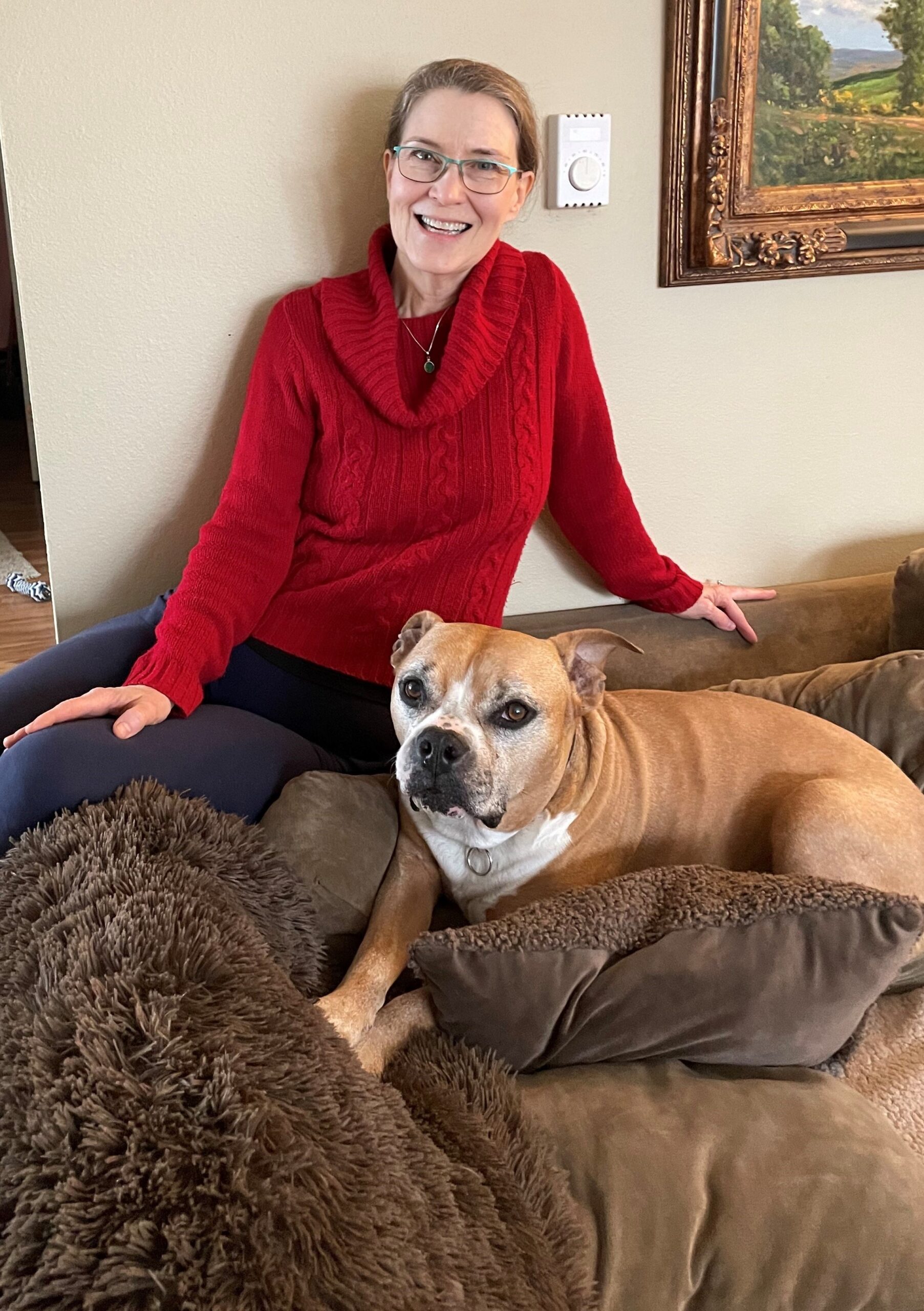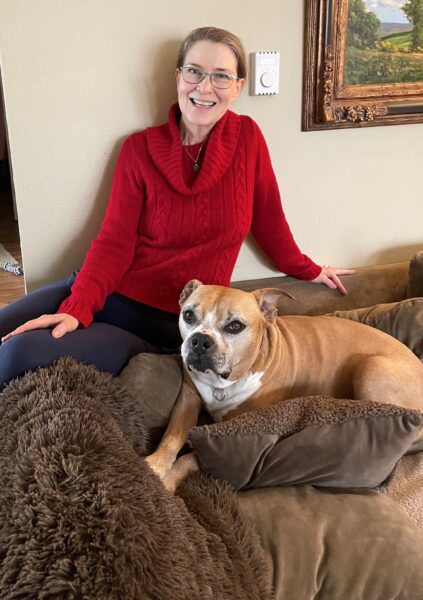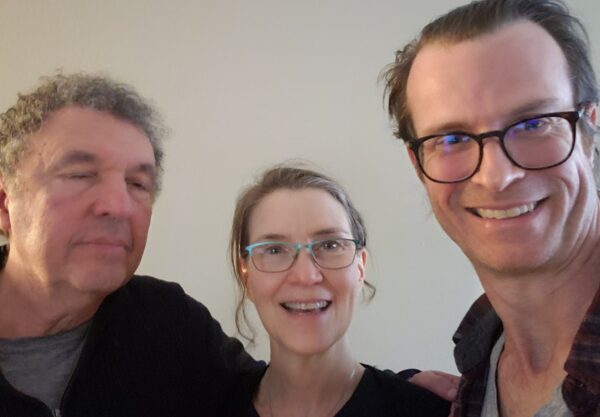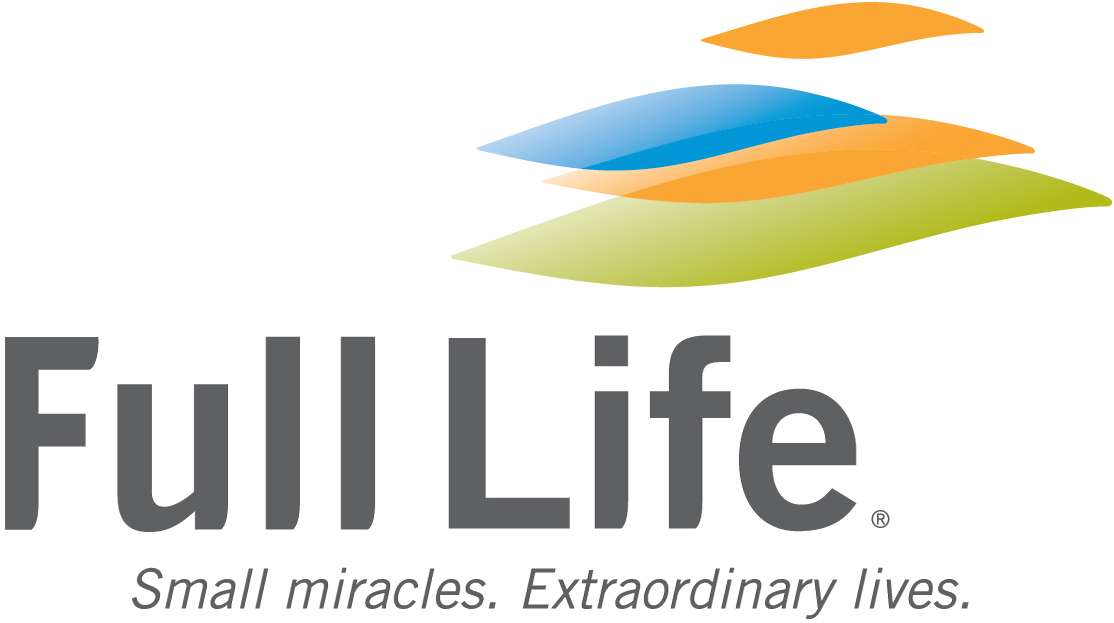A Care Team Story: Multiple Perspectives; Mutual Admiration

April 11, 2023

Barbara pictured with family companion Sonny
Barbara and Dreux lived a pretty typical life. Together, they went to work, dabbled in the arts, and met with family and friends on the weekends. Dreux drove, played in a band, and took care of the couple’s travel plans, and Barbara enjoyed painting. But in February 2020, Dreux’s health took a turn. With a dementia diagnosis, the partnership they’d built was fundamentally changed. Barbara put most life activities on the side to become his full-time caregiver. She continued solo for two and half years during Dreux’s growing struggle with dementia. Like many family caregivers, Barbara came to a point where she couldn’t carry the load on her own and she knew she needed support. A friend suggested reaching out to Full Life Care, where she found Care Teams, a new volunteer-based program that pairs family caregivers facing stress or burnout with small teams of volunteers to provide social and emotional support.
Last September, volunteers Charles Gain and Angie Alkove formed a Care Team to support Caregiver Barbara and spouse Dreux. We asked Charles, Angie, and Barbara to share their Care Teams experiences. Each of their reflections illustrate how community members can come together to form a supportive connection that results in a positive outcome for caregivers and volunteers alike.
Charles:
 After talking over the phone with us, Barbara still wasn’t quite sure where we could help best. Did she require more emotional support or help with daily chores?
After talking over the phone with us, Barbara still wasn’t quite sure where we could help best. Did she require more emotional support or help with daily chores?
Eventually, Barbara decided what she needed was a friend. In those two-and-half-years, Barbara realized, she’d neglected a basic human need: having support of her own. So, I listened to Barbara talk about things like work, family, and Dreux’s care and over time, the protective wall around her and Dreux came down. As a result, she started reaching out asking for more help such as asking Angie to drive her so that she did not feel overwhelmed with feelings of anxiety, and playing Scrabble to lift her spirits and get a real break. Barbara, Dreux, and I are planning a painting session, too. When I asked her to show me how to paint, Barbara demonstrated a huge amount of joy.
I’ve seen Barbara become more confident in driving, communicating with people, and making plans. Barbara has no delusions about what lies in front of her and Dreux, which is why she takes every moment by his side that she can. Through my time with Barbara and my teammate Angie, I’ve learned what true dedication to a person requires: putting everything to the side to help them when they are vulnerable, but feeling vulnerable enough around others to carve time for yourself too.
Angie:
The time spent with Dreux and Barbara has an ineffable quality that I have not experienced outside of close family relationships. From the very beginning I felt a mutual connection to the couple. There is a lightness and creative spark to our interactions that is carried by a shared good which we hope to bring into the world. In one of my first visits, I remarked in my notebook that our time together feels like a memory of childhood — exploring nature with friends while also navigating natural obstacles that present themselves. This little act that feels adventurous and based on hope has a prayerful quality to it that is reflected in our conversations. This comes from listening with an attentive heart and slowing down to consider the other’s position. For example, I find that our discussions go deep and, along with building trust, it encourages confidence to face an uncertain future. We share meaningful moments we have gathered through the week and express wishes for individual and collective growth we would like to help manifest in the world.
Sometimes we do this over a shared game of Scrabble or a simple art project that always seems to bring a good belly laugh, reminding us to not take ourselves too seriously. Even though one might say Dreux and Barbara are in the Autumn of their lives, our time together has a life-generating quality of Spring where new growth and promise abound. I have learned so much from their lovely sharing and their tenderness towards each other that I can hardly say I am the only one providing support. The unique nature of the Full Life Care Team approach is very much showing up as a needed and rewarding resource our community can be proud of.
Barbara:
Of her team Barbara says: “I love my Care Team, they are here for me without judgement. Angie and Charles are very different and both very supportive. Angie is warm and bubbly and eager to be there for me. Charles is kind, knowledgeable and has really helped me by encouraging me to paint. I am so grateful to have these two in my life.”
Full Life’s Care Teams program, funded by the King County Veterans Seniors, and Human Services Levy, launched in early 2022. This volunteer-based model connects small teams of community volunteers directly with family caregivers to offer tailored non-medical support aimed at reducing caregiver stress and burnout. To learn more about Care Teams: https://fulllifecare.org/services/care-teams/care-teams-volunteers/
